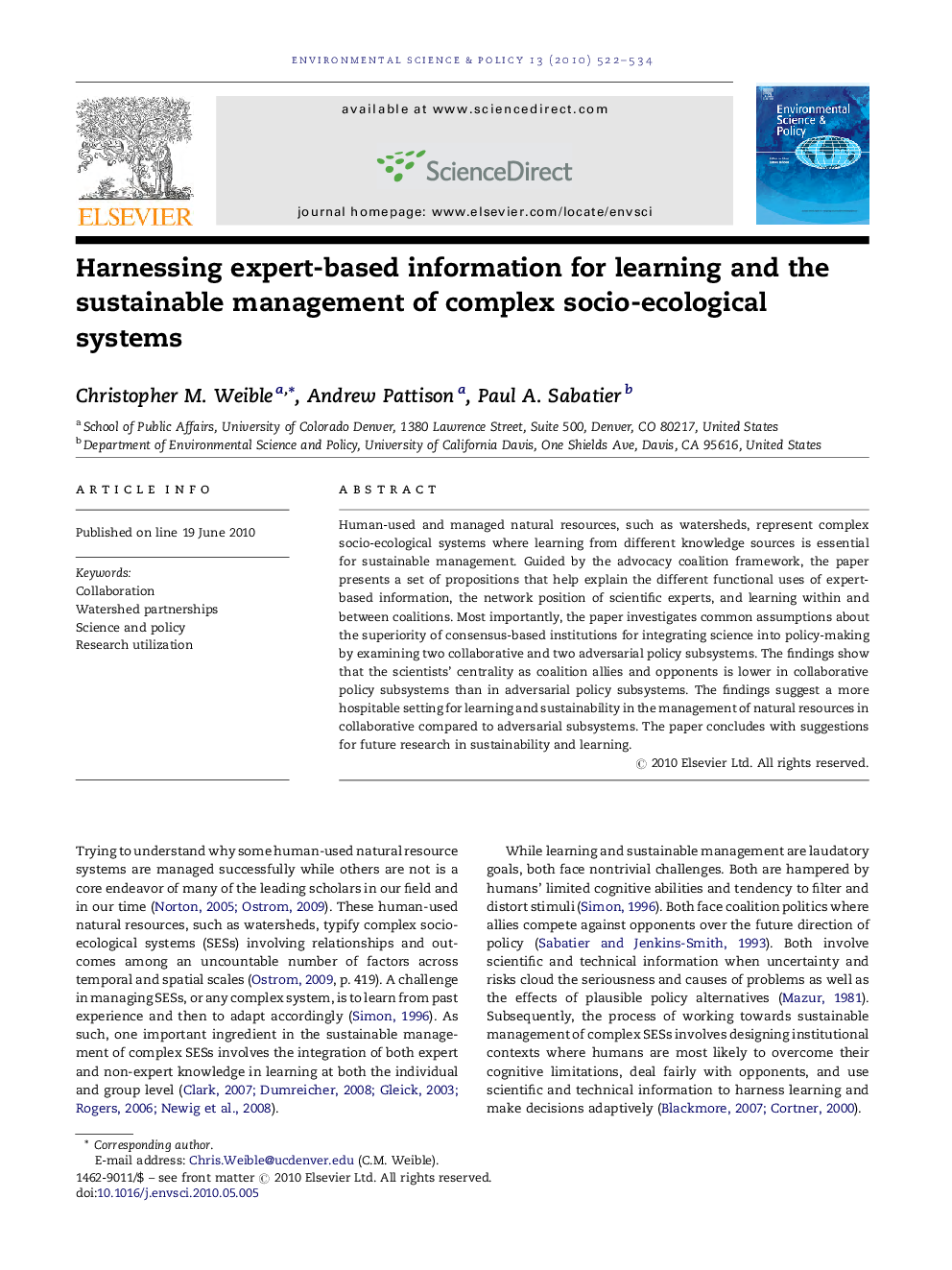| Article ID | Journal | Published Year | Pages | File Type |
|---|---|---|---|---|
| 1053987 | Environmental Science & Policy | 2010 | 13 Pages |
Human-used and managed natural resources, such as watersheds, represent complex socio-ecological systems where learning from different knowledge sources is essential for sustainable management. Guided by the advocacy coalition framework, the paper presents a set of propositions that help explain the different functional uses of expert-based information, the network position of scientific experts, and learning within and between coalitions. Most importantly, the paper investigates common assumptions about the superiority of consensus-based institutions for integrating science into policy-making by examining two collaborative and two adversarial policy subsystems. The findings show that the scientists’ centrality as coalition allies and opponents is lower in collaborative policy subsystems than in adversarial policy subsystems. The findings suggest a more hospitable setting for learning and sustainability in the management of natural resources in collaborative compared to adversarial subsystems. The paper concludes with suggestions for future research in sustainability and learning.
